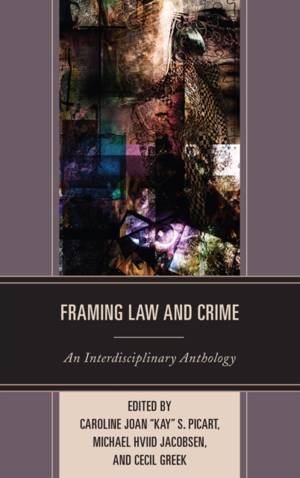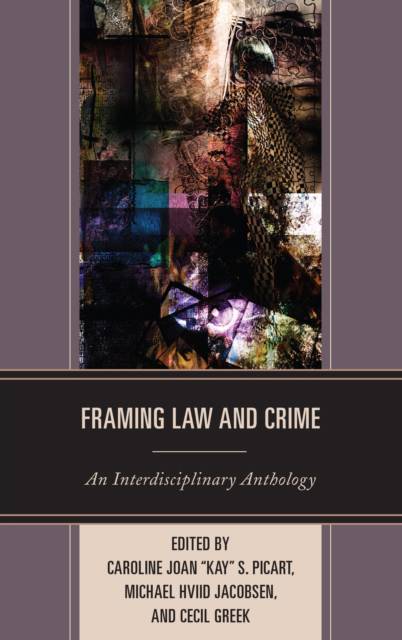
- Retrait gratuit dans votre magasin Club
- 7.000.000 titres dans notre catalogue
- Payer en toute sécurité
- Toujours un magasin près de chez vous
- Retrait gratuit dans votre magasin Club
- 7.000.000 titres dans notre catalogue
- Payer en toute sécurité
- Toujours un magasin près de chez vous
Framing Law and Crime
An Interdisciplinary Anthology
127,45 €
+ 254 points
Description
This cutting-edge edited collection brings together 17 scholarly essays on two of cinema and television's most enduring and powerful themes: law and crime. With contributions by many of the most prominent scholars in law, sociology, criminology, and film, Framing Law and Crime offers a critical survey of a variety of genres and media, integrating descriptions of technique with critical analysis, and incorporating historical and socio-political critique. The first set of essays brings together accounts of the history of the Law and Cinema Movement; the groundbreaking genre of "post-apocalyptic fiction;" and the policy-setting genesis of a Canadian documentary. The second section of the book turns to the examination of a range of international or global films, with an eye to assessing the strengths, frailties, and possible functions of law, as depicted in fictional cinema. After an international focus in the second section, the third section focuses on law and crime in American film and television, inclusive of both fictional and documentary modes of narration. This section's expansion beyond film narratives to include television series attempts to broaden the scope of the edited collection, in terms of media discussed; it is also a nod to how the big screen, although still a dominant force in American popular culture, now has to compete, to some extent, with the small screen, for influence over the collective American popular cultural imaginary. The fourth section, titled brings together various chapters that attempt to instantiate how a "Gothic Criminology" could be useful, as an interpretative framework in analyzing depictions of law and crime in film and television. The fifth and final section covers issues of pedagogy, epistemology, and ethics in relation to moving images of law and crime. Merging wide-ranging analyses with nuanced scholarly interpretations, Framing Law and Crime examines key concepts and showcases original research reflecting the latest interdisciplinary trends in the scholarship of the moving image. It addresses, not only scholars, but also fans, and will heighten the appreciation of connoisseurs and newcomers to these topics alike.
Spécifications
Parties prenantes
- Editeur:
Contenu
- Nombre de pages :
- 496
- Langue:
- Anglais
- Collection :
Caractéristiques
- EAN:
- 9781611479096
- Date de parution :
- 24-05-18
- Format:
- Livre broché
- Format numérique:
- Trade paperback (VS)
- Dimensions :
- 152 mm x 226 mm
- Poids :
- 816 g






